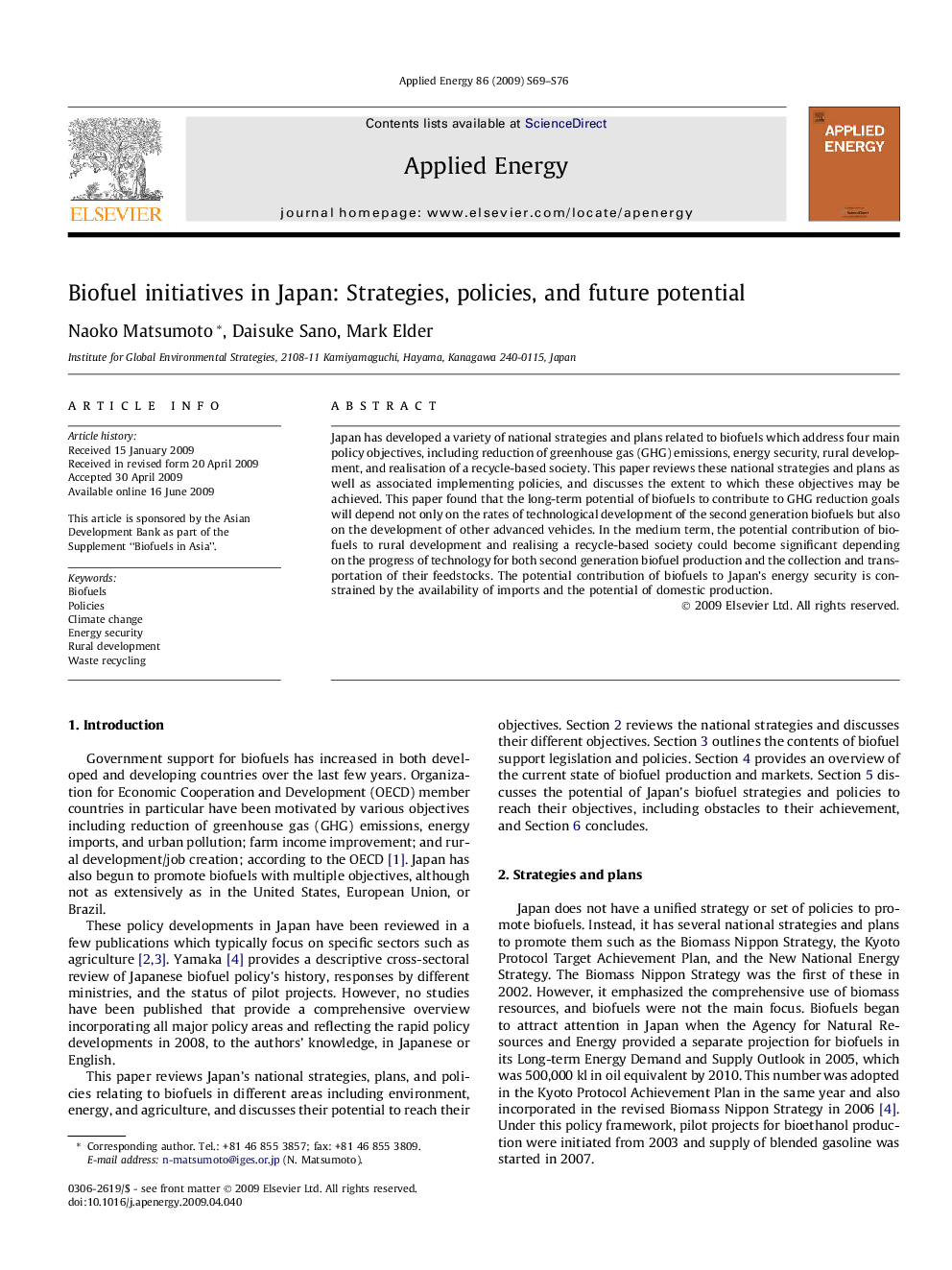| Article ID | Journal | Published Year | Pages | File Type |
|---|---|---|---|---|
| 245193 | Applied Energy | 2009 | 8 Pages |
Japan has developed a variety of national strategies and plans related to biofuels which address four main policy objectives, including reduction of greenhouse gas (GHG) emissions, energy security, rural development, and realisation of a recycle-based society. This paper reviews these national strategies and plans as well as associated implementing policies, and discusses the extent to which these objectives may be achieved. This paper found that the long-term potential of biofuels to contribute to GHG reduction goals will depend not only on the rates of technological development of the second generation biofuels but also on the development of other advanced vehicles. In the medium term, the potential contribution of biofuels to rural development and realising a recycle-based society could become significant depending on the progress of technology for both second generation biofuel production and the collection and transportation of their feedstocks. The potential contribution of biofuels to Japan’s energy security is constrained by the availability of imports and the potential of domestic production.
